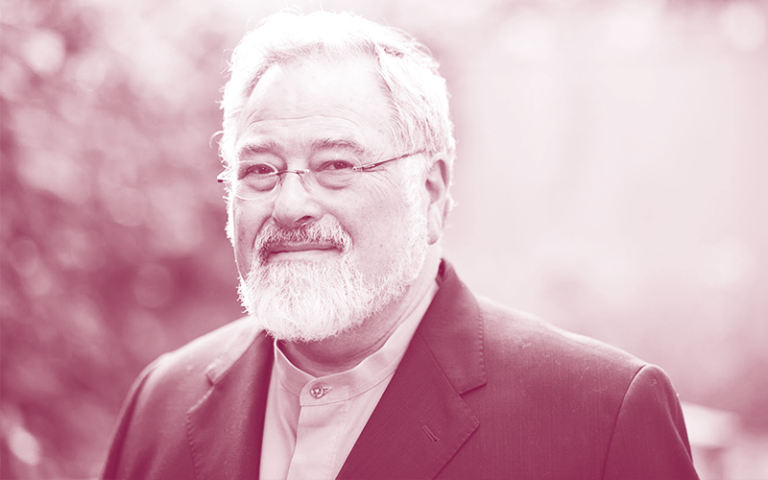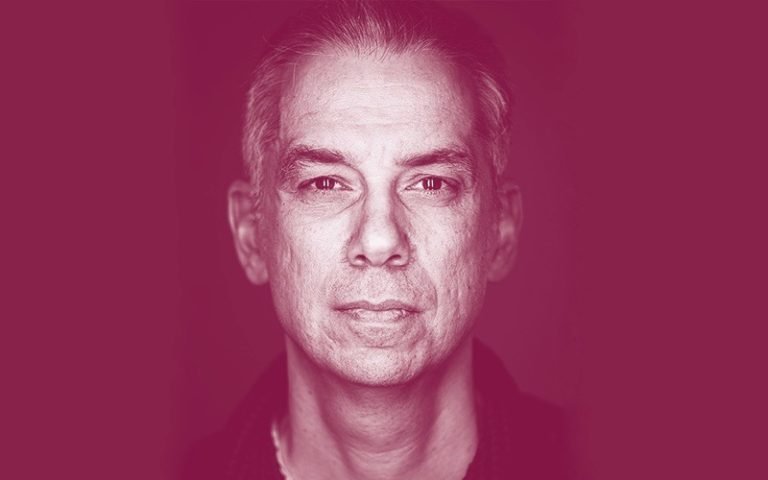
Episodes
- Advocacy
- Amendment
- April 2022
- Art
- Census
- Child Poverty
- Civic Education
- Civic Engagement
- Civil Rights
- College
- Community Activism
- Compassion
- Corruption
- Criminal Justice
- Data
- Democracy
- Education
- Empathy
- Environment
- Equality
- Family Homelessness
- February 2022
- Foreign Policy
- Framing
- Free Speech
- Health Care
- History
- Human Rights
- Immigration
- Interview
- January 2022
- June 2022
- Juvenile Justice
- Latino Rights
- Law
- March 2022
- May 2022
- Media
- Millennials
- Music
- Political Strategy
- Poverty
- Protest
- Public Health
- Public Policy
- Refugees
- Reproductive Rights
- Season 11
- Season 12
- Season 13
- Season 14
- Season 15
- Season 16
- Season Eight
- Season Five
- Season Four
- Season Nine
- Season Seven
- Season Six
- Season Ten
- Season Three
- Self Awareness
- Tech
- U-S- Representatives
- Union
- Vote
- Voter Engagement
- Voting Rights
- Women Rights
- Workers Rights
Critical Race Theory: Mari Matsuda
Mari J. Matsuda is a lawyer, activist, law professor, and founding practicioner of Critical Race Theory. We discuss the various ways inequality threatens our freedom, the dangers of harmful speech, and the way racism is systemic to our institutions.
Digital Labor Organizing: Jess Kutch
Jess Kutch is co-founder of Coworker.org, a platform that deploys digital tools, data, and strategies to help workers experiment with power-building and win meaningful change in the 21st century economy. We discuss the importance of worker voice, organizing in the digital age, and practicing democracy in the workplace.
Supreme Inequality: Adam Cohen
Adam Cohen, senior writer for Time magazine and prior member of The New York Times editorial board, is the author of Supreme Inequality: The Supreme Court's Fifty-Year Battle for a More Unjust America. We discuss the power of the Supreme Court, the far-reaching consequences of the court’s decisions, and the decades-long consistency of rulings against America’s poor.
Building Civic Power: K. Sabeel Rahman
K. Sabeel Rahman is an Associate Professor of Law at Brooklyn Law School, and co-author of Civic Power: Rebuilding American Democracy in an Era of Crisis. We discuss the concept of civic power, putting policy-making decisions in the hands of affected communities, and building an equitable economy for all Americans.
State Capture: Alex Hertel-Fernandez
Alex Hertel-Fernandez is Associate Professor at Columbia University’s School of International and Public Affairs, and the author of State Capture: How Conservative Activists, Big Businesses, and Wealthy Donors Reshaped the American States – and the Nation. We discuss the efficacy of controlling state legislatures and implementing public policies to reshape the political terrain.
Politics is for Power: Eitan D. Hersh
Eitan D. Hersh is associate professor at Tufts University and author of Politics is for Power: How to Move Beyond Political Hobbyism, Take Action, and Make Real Change. We discuss how politics is the way we solve our society’s problems and why building political power is the key to making our civic engagement effective.
Surveillance Capitalism: Shoshana Zuboff
Shoshana Zuboff is a Harvard Professor emerita and the author of The Age of Surveillance Capitalism: The Fight for a Human Future at the New Frontier of Power. We discuss the creation of a human futures market by surveillance capitalists and the pursuit to replace democratic governance with computational governance by instrumentarian power.
This episode was recognized by the Asian American Podcasters Association with their Golden Crane Award for Best Interview.
Canvassing with Love: David Fleischer
David Fleischer is the Director of the Los Angeles LGBT Center’s Leadership Lab. Through their work in talking to thousands of voters, the Center created “deep canvassing,” a method of exchanging narratives to find common ground and decrease prejudice. We discuss how changing minds begins with the heart.
Deconstructing the Alt-Right: Alexandra Minna Stern
Alexandra Minna Stern is a professor at the University of Michigan and author of Proud Boys and the White Ethnostate: How the Alt-Right Warped the American Imagination. We discuss the meta-political work of the Alt-Right in mainstreaming white supremacy and ways to counter this ideology.
Political Communication Ethics: Peter Loge
Peter Loge is the founding Director of the Project on Ethics in Political Communication and an Associate Professor at The George Washington University. We discuss making American civil religion the moral backbone of our body politic through ethical communication, substantive press coverage of politics and policy, and promoting the truth.
Fact-Checking for Truth: Jon Z. Greenberg
Jon Z. Greenberg is a Senior Correspondent at PolitiFact, a not-for-profit news organization that seeks to present the true facts, unaffected by agenda or biases. We discuss who gets fact-checked, how it works, and why speaking truth to power is one of the most important things we can do.
The New Conspiracism: Nancy Rosenblum
Nancy Rosenblum is Professor of Ethics in Politics and Government at Harvard University and co-author of A Lot of People are Saying: The New Conspiracism and the Assault on Democracy. We discuss why this kind of conspiracism is deeply destructive to our society and how enacting democracy can protect reality and relegimitate our institutions.
The Risks of Fake News: Travis I. Trammell & Elisabeth Paté-Cornell
Lt. Col. Travis I. Trammell worked with Stanford Professor Elisabeth Paté-Cornell to analyze the risks of fake news and create a management decision model to combat disinformation. We discuss the national security risks posed by fake news from other nation states, the kind of influence campaign to expect in 2020, and the most effective countermeasures.
The Truth Sandwich: George Lakoff
George Lakoff is an emeritus professor of cognitive science and linguistics at UC Berkeley whose research includes the language of politics in which we reside. We discuss the importance of framing the truth first, his famous "truth sandwich," and why the press is critical to a functioning democracy.
Post-Truth: Lee C. McIntyre
Lee C. McIntyre is the author of Post-Truth and a Research Fellow at the Center for Philosophy and History of Science at Boston University. We discuss what post-truth means and where it started, what the function of fake news is, and how propaganda plays a role in subordinating a population.
Authoritarianism Under COVID-19: Thomas O. Melia
Thomas O. Melia is the Washington Director of PEN America, a non-profit organization that champions free speech and defends the liberties that make it possible. We talk about authoritarians worldwide consolidating power under cover of COVID, the ever-encroaching surveillance state, and the public perception of Trump’s pandemic response.
Climate Justice: Julian Brave NoiseCat
Julian Brave NoiseCat is Vice President of Policy and Strategy at Data for Progress, Narrative Change Director of The Natural History Museum, author, and a First Nations member. We discuss the need for climate justice, what we can learn from our indigenous communities, and why durable clean energy policy is key to stopping climate change.
Writing Climate Policy: Jerry Taylor
Jerry Taylor is the President and co-founder of the Niskanen Center, a non-partisan think tank that works to promote an open society. We talk about his conversion from climate denier to climate advocate, working behind the scenes to persuade Republican lawmakers to act on climate change, and why a carbon tax is the most effective public policy to do so.
Democracy and Freedom: Season Round Up
Revisit some of the highlights from Future Hindsight’s season on the forces that support democracy and a free society with Civics 101 Podcast hosts Hannah McCarthy and Nick Capodice, PEN America CEO Suzanne Nossel, TurboVote founder Seth Flaxman, and founding members of the Irish Citizens’ Assembly Jane Suiter and David Farrell.
The Meritocracy Trap: Daniel Markovits
Daniel Markovits is the author of The Meritocracy Trap as well as Guido Calabresi Professor of Law at Yale Law School. His book places meritocracy at the center of rising economic inequality and social political dysfunction. We talk about how the myth of meritocracy feeds inequality and erodes democracy.
Bipartisan Civil Discourse: Michael Baranowski
Michael Baranowski is the founder and one of the hosts on the popular podcast The Politics Guys. The podcast is a place for bipartisan, rational, and civil debate on American politics and policy. We discuss why civil dialogue is critical in a democracy, the value of keeping an open mind, and the relative strength of our institutions and electoral system.
Protecting Free Speech: Suzanne Nossel
Suzanne Nossel is the CEO of PEN America, the world’s foremost human rights and free expression non-profit organization. We discuss the importance of the First Amendment for American democracy, Trump’s unprecedented attacks on the press, and the state of free expression around the world.
Deliberative Democracy: The Irish Citizens’ Assembly
Jane Suiter and David Farrell helped co-found the Irish Citizens’ Assembly, a deliberative forum that puts citizens at the heart of the considerations for constitutional and political reforms. We discuss how regular citizens can be trusted to weigh the evidence, make nuanced policy decisions, and become deep stakeholders in civic life.
Responsible Statecraft: Stephen Wertheim
Stephen Wertheim is the Deputy Director of Research and Policy at the Quincy Institute, an organization that promotes responsible statecraft. We discuss the history of our foreign policy, and why it is in the public interest of all Americans to move away from endless war and reinvigorate diplomacy for a peaceful world.
Keeping Government Accountable: David Greising
David Greising is the President and CEO of the Better Government Association, Illinois’ only non-partisan full-service watchdog organization. Through investigative reporting and policy advocacy, BGA works towards transparency, efficiency, and accountability in government. We discuss the value of exposing corruption and empowering citizens to engage and act.
Powering American Democracy: Seth Flaxman
Seth Flaxman is the co-founder of Democracy Works, a non-profit and non-partisan organization that aims to make voting simple and seamless. They provide tools for voters, such as TurboVote, as well as critical data infrastructure for elections. We talk about voting in the 21st century, creating partnerships for a stronger democracy, and increasing voter turnout.
Protecting our Elections: Marcia Johnson-Blanco
Marcia Johnson-Blanco is the Co-Director of the Voting Rights Project, an initiative of the Lawyers’ Committee for Civil Rights Under Law. The program works to ensure voters have an equal opportunity to vote, to have that vote count, and to keep elections free and fair. We talk about the challenges, threats, and solutions facing our democracy and elections.
Podcasting for Democracy: Civics 101
Hannah McCarthy and Nick Capodice host Civics 101, the podcast refresher course about the basics of how American democracy works. We discuss the importance of empowering citizens and understanding the rules of our complex system, as well as the enduring repercussions of slavery in the United States.
Reimagining Civic Learning: Louise Dubé
Louise Dubé is the Executive Director of iCivics, an organization whose mission is to cultivate a new generation of students for thoughtful and active citizenship. We discuss the critical importance of high-quality civics education, the role of iCivics games in effective learning, and the necessity for robust investment and legislation in this space.
Of the People, By the People: Mila Atmos
Mila Atmos is the Founder and Host of Future Hindsight, this very podcast whose mission is to spark civic engagement. In this mini episode with Associate Producer Myriam Zumbühl, we discuss how we are all part of the government through the taxes we pay, and how we need to hold our elected representatives accountable.






























